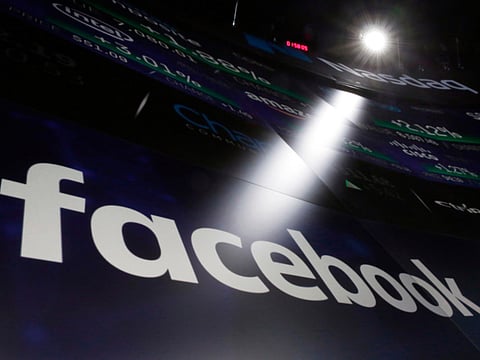Why we need regulations to protect online privacy
Most people do not even realise what data they are providing, let alone tweak their settings to prevent personal information from being used

Following up on the Facebook data scandal of two weeks ago, the Guardian last Wednesday ran a stunning article by Dylan Curran, detailing all the personal data that Google and Facebook have on us. Curran is a data consultant and web developer with extensive experience in the field, and yet he was shaken to his core at what he found. Imagine the rest of us! And indeed, scores of people have gone on the web and downloaded their own data (Curran gave easy links for that) and started tweeting their reactions, which ranged from jaw-dropped disbelief to panic attacks.
Before analysing the implications of these revelations, let us briefly review what personal information Google and Facebook have collected on us, almost always without our awareness.
First, if you have Google on your phone (and who doesn’t?), it has a list of: every search you have made, including any images, even if you ended up “deleting” that from your phone; all the apps you have used, where, when, and what; every video you have watched or searched for on YouTube, and all implications. And should that not shock you enough, if you have the ‘location’ tracking turned on, then Google has records of every place you have been to since you started using that on your phone; if you use Google Calendar, then it has all the events you have put on it, whether you did attend them, and what exact times; if you use Google Fit, then it knows your physical exercise routines (times, effort, etc); if you use Gmail, then Google has every email you ever sent, and of course to whom, etc.
What about Facebook? I requested my data (you can do that by going to ‘Settings’ in the drop-down menu at the upper right, then ‘General Account Settings’, where you’ll find ‘Download a copy of your Facebook data’), and the file was 815 MB, the equivalent of hundreds of books in pdf format. And what was in it? My data file included all the photos and images I have ever posted, all the video and audio files I have posted or received through direct messages, all the events I clicked on, and of course every text I ever posted, including direct messages and comments, and stickers too!
However, and this is good to know, because I never use Facebook on my smartphone, my Contacts list was empty, but it did have the list of all my FB “friends and followers” (I have both a personal page with about 500 “friends” and a “public figure” page with 52,000 followers), including those I deleted, those whose requests I rejected, those that I requested, etc. Others have reported that Facebook has the contact information on friends who are not on Facebook (this results from using the platform from one’s smartphone). And if that is not shocking enough, Facebook will also know whom you called and when, even people you have now lost track of! What for?
Google and Facebook do this for advertising and profiling purposes. Indeed, Google constructs a profile of you, which includes your age, sexual type and status, location, professional activity, interests and hobbies, and so forth. And as we learned from the recent Cambridge Analytica scandal, Facebook sells data for psychological and political profiling. If you download your Google data file, you will get — among many other things — a list of all the advertisers that have bought your contact information.
Facebook and Google (and others) will retort that we all signed a consent form when we started using their services (pages, email accounts, etc), and in exchange, they get to use our data. They will insist that we can simply opt out of using those platforms or apps, or at the very least limit (through Settings) what we allow them to take from us.
That argument has limited validity, however, because we all know that most people are not savvy enough to even realise what data they are providing, let alone tweak their settings to prevent personal information from being extracted and used. More-over, what about the friends (real or virtual) whose contact information and data — and in the case of Facebook, their social media activity — end up somewhere simply because I have (by sheer ignorance) allowed Google or Facebook to access and use my phone data?!
And last but not least, these companies are not abstract entities, they have thousands of employees, many of whom have access to all the data. How can we be sure that none of them will try to gain an advantage (social or financial) from it? And what about government requests? We know that Google has in recent times acquiesced to American and Chinese demands of one kind or another. And Facebook has allowed Cambridge Analytica (and possibly other companies) to use millions of profiles for various goals.
Data is the new oil. There will be battles, now digital, fought for it on our backs. We need every decision maker and opinion maker to put in serious efforts to regulate the usage of data. This is an urgent and critical matter.
Nidhal Guessoum is a professor at the American University of Sharjah, UAE. Twitter: www.twitter.com/@NidhalGuessoum.


